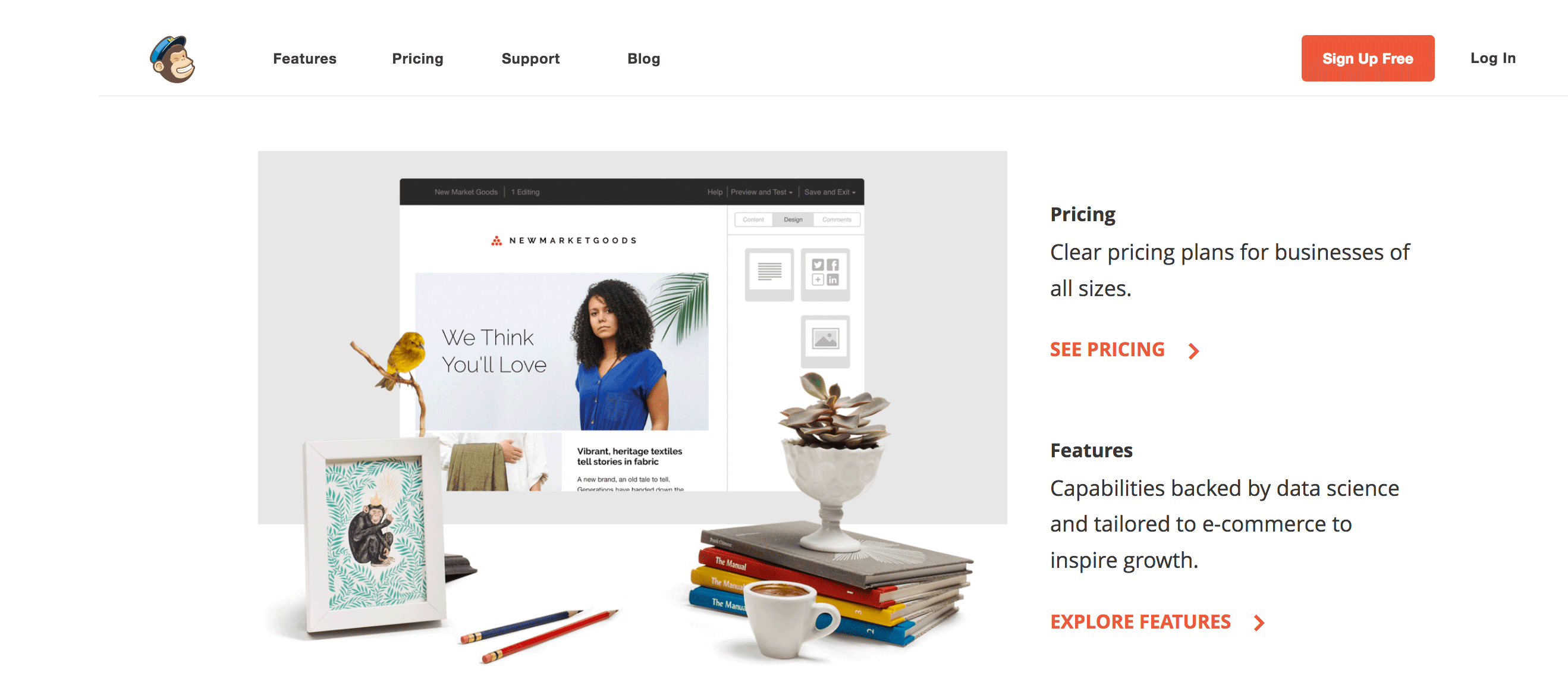
If you’re looking for a long-term future in web development, WordPress is the perfect tool to do it. While the content management system itself is free to use, opportunities abound for professionals like yourself to make real money off of it.
As a WordPress developer, there are a number of paths you might consider taking your business down:
- You could sustain your business on random one-off web development projects.
- You could work as the dedicated developer for a number of long-term clients.
- You could develop and sell WordPress products like plugins, themes, or other third-party integrations.
- You could create and run your own WordPress development agency.
Luckily for you, your skill as a WordPress developer is a highly valued one and it means there is quite a bit of flexibility in what your future may hold.
When you look ahead, what exactly is it that you see in terms of your business? Are you jumping from job to job, building websites here, supporting WordPress platforms there, developing a plugin in your spare time, hoping the work never dries up? Or do you envision building up your WordPress business and turning it into something not only stable, but thriving?
If you chose the latter, then the key to your business’s success is going to lie in your ability to scale it.

Building a Future for Your WordPress Business
When you take a look at the founders of large, successful corporations, the work you see them do nowadays is vastly different than the work they did before they started their companies. Mark Zuckerberg and Bill Gates are the perfect examples of this.
- Back in the day, both of these men were programmers.
- They launched their products while working beside just a handful of people and while continuing to code.
- Once their companies and products started to gain attention for the game-changing innovations that they were, they were forced to scale.
- Eventually, both stepped away from programming and focused solely on growing and running their businesses.
As a WordPress developer, this is a similar sort of trajectory you should envision for your own business. Starting out, you’ll spend most of your time developing websites. Perhaps you’ll have someone else to take on overflow work or to assist with design or copywriting, but for the most part, you are the business. At some point—maybe not right now, but definitely somewhere in the near future—you will get to a point where you need more help in order to grow.
This is where scaling comes in.
The idea of scaling is more than just about growing your business. That’s what you’ve been doing all along. You find more clients, you grow your business’s reputation, and you keep a steady flow of work moving through your pipeline. Scaling, on the other hand, is all about expanding your business’s profits while keeping costs low.
Let’s stop here for a minute and consider the following questions:
- Am I overworked?
- Am I struggling to keep up on all business matters outside of development?
- Have I turned down new, viable business opportunities recently?
- Would I be comfortable doing anything besides basic WordPress development?
- Do I want a long-term future for my WordPress business?
- Would someone else be able to replicate the development work I currently do?
If you’ve answered “yes” to all of these questions, it may be time for you to consider scaling your WordPress development business.
You also need to be able to envision your services as a packageable and manageableproduct. If you can develop consistent, repeatable, and high quality processes and systems around this “product” you can cut down on production costs even as you increase spend elsewhere. This will be just the start of the scaling process.
Self-Identification Checklist: Is My WordPress Business Scalable?
Now, if you’re still wondering if your WordPress business is scalable or not, you’ve got to take a close look at your business as it stands today. Without a solid base there, you won’t be able to take the leap to the next phase.
The following checklist will help you determine whether you are ready now to start scaling or if you need to do further work to get to that point. Take your time, assess each of the following carefully, and check off the boxes that you’ve got securely under your belt.
☐ Brand Image: This includes everything related to your business’s identity: the company name, logo, branding colors, voice, messaging, mission and values statements, and, of course, a website.
☐ Service Offering: You can’t be all things to everyone (nor should you try to be—it goes against the whole predictability piece needed to scale), so you need to clearly outline the specific services your business offers.
☐ Audience: Every business owner should have a clear understanding of who their audience is, what the audience needs from the business, and how to grow the business as those needs evolve.
☐ Pricing: Pricing should be established logically and competitively. If you don’t know how to do this, review previously completed projects to determine how much your time is actually worth and build in a healthy markup to ensure profitability.
☐ Differentiators: Every company has at least one of these. Claim an industry niche, highlight your unique WordPress service, demonstrate how your company is top-ranked—do whatever it takes to make you stand out from the competition.
☐ Standards Adherence: As a WordPress developer, you must be aware of and in compliance with WordPress coding standards.
☐ Industry News: Whether WordPress issued an update to patch a security threat, Google changed its search algorithm again, or a new plugin hit the market, it’s your job as a WordPress developer to stay up on all the news affecting your business and your clients’ sites.
☐ Proven Track Record: If you expect new clients to flock to your business, you need a proven track of success, including an impressive portfolio, client testimonials, and a professional organizational setup.
☐ Marketing and Sales: As a business owner, new or old, you should always be looking for new opportunities to get people to pay attention to your business. This means you need to be well-established on social media, actively update your website, and participate in thought-provoking and genuine conversations with others online.

1.6 million WordPress Superheroes read and trust our blog. Join them and get daily posts delivered to your inbox – free!
☐ Quality: In order to scale services, there should be a strict adherence to quality and attention to detail in everything that is done. Without it, there won’t be any way to easily or cleanly replicate your process.
☐ Vision: Clearly-defined goals are a crucial part of every business’s success. Without a clear vision of where you want to go or measurable and attainable goals to get you there, it’ll be very difficult clearing a path if you don’t know where it will lead.
If you’ve been able to check off all these boxes, then great! That means your WordPress business is scalable. If you’re still missing a few, take some time to address those points and make sure you have them solidly nailed down. The process of scaling does come with some risks, so it’s really important that your business be set up for as smooth a transition as possible.
COMMUNITY
Amazing people sharing tons of knowledge
Chat to like-minded folks who are building websites and businesses just like you. With your WPMU DEV membership comes access to our exclusive members-only forums where you can discuss everything from code and customizations to SEO and online strategy.

Scaling Checklist: How to Turn Your WordPress Business into a Well-Oiled Machine
When you think of “production line,” what’s the first image that pops into your head? Anonymous men and women—with their faces covered in masks and hands in gloves—working in a factory? Or maybe it’s something more ominous with row after endless row of machines pushing products through a pipeline?
In reality, the idea of a production line simply boils down to one thing: efficiency. It’s about how quickly and consistently you can repeat a process. And, in order to do that, you need to be able to automate and delegate.
This takes us back to that original idea of turning your WordPress services into a “product.”
Products tend to be easier to scale because the process of creating one isn’t as involved as the work that goes into providing a service (i.e. client communications, coordinating with writers and designers, working through rounds of revisions, etc.) With a product, once you’ve nailed down the specifications, the focus really then just goes into how to either mass produce it or to sell it.
Now, when it comes to services, you’ve got a lot more to manage and ultimately offload before you can focus on running your business. That’s why it’s best if you can automate your operations with software, streamline your processes, and bring other parties into the mix. This will help you compartmentalize and condense all the moving pieces of your business as much as possible.
Just remember that the systematizing of your business should not mean that you do away with the creativity or attention to detail that got you here in the first place. On the contrary, all of this automation and streamlining should help you focus on running your business and delivering your WordPress services more efficiently and effectively to every single customer.
For those of you ready to scale your WordPress business, we’ve developed the following checklist just for you. It covers all the high-level goals you should aim to reach as you grow and ultimately stabilize your scaled business.
Streamline Development Projects
☐ Processes
☐ Development project steps and checklist
☐ Documentation for all internal processes
☐ Timeline for standard website development
☐ Standard project phase and payment breakdown
☐ Templates
☐ Customer contracts
☐ Employee or contractor paperwork
☐ Scope of work documentation
☐ Project proposals
☐ Scripts/canned messaging
☐ Tools
☐ Themes
☐ Plugins
☐ Stock photography source
☐ Image manipulation tool
☐ QA tool
☐ Responsive checker
☐ Project time tracker
☐ Resources
☐ Business handbook
☐ WordPress Coding Standards
☐ WordPress Codex
☐ WPMU DEV Tutorials
Automate Operations
☐ Software
☐ Development/design
☐ Project management
☐ Contract management
☐ Workforce management
☐ Accounting
☐ Customer relationship management
☐ Email
☐ Reporting
☐ Finances
☐ Production goals
☐ Sales activity tracker
☐ Personal website performance
☐ Personal social media performance
☐ Other marketing statistics
☐ Monthly recap meeting to review report findings
☐ Marketing
☐ Ongoing personal website maintenance
☐ Daily social media activity and engagements
☐ Weekly blogging
☐ Monthly newsletter
☐ Monthly setup for paid marketing activities
☐ Monthly team meetings to review and plan
☐ Attend industry meetings
☐ Sales
☐ Weekly follow-up with prospective clients
☐ Quarterly check-in with previous clients
☐ Monthly meeting to discuss possible product or service promotions
Grow Output
☐ Outsourcing
☐ Administrative tasks
☐ Accounting
☐ Marketing
☐ Project management
☐ Design and development for personal website
☐ Design and development for clients’ websites
☐ Strategic Partnerships
☐ WordPress designers
☐ WordPress bloggers
☐ WordPress plugin and theme developers
☐ WordPress support services providers
☐ Hosting companies
☐ Investors
☐ Add New Products and Services to Portfolio
Wrapping Up
At the end of the day, what matters most is getting your WordPress business to a place where you have too much of it to handle on your own—something that can feel absolutely wonderful and simultaneously overwhelming. And that’s when you know it’s time to scale.
Keep these two checklists on hand. First, for when you want to ensure that your business is indeed scalable. And, second, to make sure you hit all the major points during the scaling process. The ultimate goal is to streamline your processes, outsource as much of the work to other people as possible, and free yourself up to successfully run your business. It sounds like a lot, but you can do it.
Source: WPMUDEV


